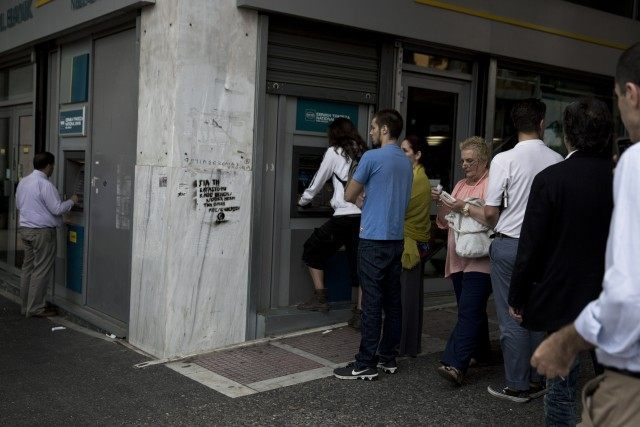The Eurozone rejected Greece’s request for a one-month bailout extension only a day after the bankrupt country turned down an extension offer from their creditors. “It looks like we are heading for Grexit,” exclaimed one person who participated in the meetings.
Greek Prime Minister Alexis Tsipras shocked the EU when he announced a “referendum for July 5 on the tough economic policies the country’s creditors want in exchange for more rescue funding.” He believes the Greeks “should have their say on the economic retrenchment that other eurozone countries and the International Monetary Fund are demanding of Greece.” He hopes these voters will reject the creditors’ terms, which include tax hikes and decline in government spending.
“It’s a sad decision for Greece because it has closed the door for further talks,” lamented Jeroen Dijsselbloem, the Dutch finance minister.
Greece is required to pay €1.55 billion ($1,731,040,000) to the International Monetary Fund on Tuesday. But they cannot do this without the loans from their creditors, which means they will more than likely default on the payment. With a default, Greece cannot withdraw any more bailout money.
“I think there is a clear majority consensus inside the Eurogroup that an extension of the program is out of the question,” described Finnish Finance Minister Alexander Stubb. “I feel quite sad about the situation especially on behalf of the Greek people. I believe Plan B is quickly becoming Plan A.”
Hundreds of Greeks lined up at ATMs on Saturday to take out their remaining money. The rush hit the banks so hard the executives limited cash transactions. Two of these executives claimed that “as many as 500 of the country’s more than 7,000 ATMs had run out of cash as of Saturday morning, and that some lenders may not be able to open on Monday unless there was an emergency liquidity injection from the Bank of Greece.” The Piraeus Bank SA limited people to only withdraw €3,000 ($3,350) at the bank and €600 ($670.08) at ATMs.
“I’m here to take my mother’s pension out before the machine runs out of cash,” explained Greek citizen Erato Spyropoulos. “It’s very worrying what’s happening because people don’t know what they’re being asked to vote for. It’s the last nail in Greece’s coffin.”
The Greek government, led by Tsipras’s far-left party Syriza, believes the creditors should listen to their new demands, since the Greeks voted for the party in January. But the majority of the EU governments told Tsipras he needs “to stick to the bailout contract agreed with Athens previously: Loans only in return for stringent economic overhaul.”
Yet, none of the ministers at the meeting said they wanted Greece to leave to EU.
“We want Greece to stay in the euro,” asserted Spain’s Luis de Guindos.

COMMENTS
Please let us know if you're having issues with commenting.